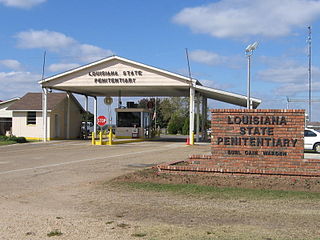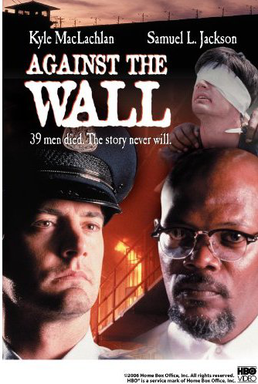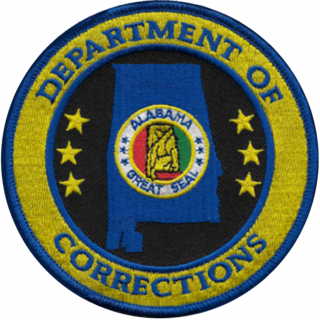
Criminal justice is the delivery of justice to those who have been accused of committing crimes. The criminal justice system is a series of government agencies and institutions. Goals include the rehabilitation of offenders, preventing other crimes, and moral support for victims. The primary institutions of the criminal justice system are the police, prosecution and defense lawyers, the courts and the prisons system.

The Attica Prison Riot, also known as the Attica Prison Rebellion, the Attica Uprising, or the Attica Prison Massacre, took place at the state prison in Attica, New York; it started on September 9, 1971, and ended on September 13 with the highest number of fatalities in the history of United States prison uprisings. Of the 43 men who died, all but one guard and three inmates were killed by law enforcement gunfire when the state retook control of the prison on the final day of the uprising. The Attica Uprising has been described as a historic event in the prisoners' rights movement.

Attica Correctional Facility is a maximum security campus New York State prison in the town of Attica, New York, operated by the New York State Department of Corrections and Community Supervision. It was constructed in the 1930s in response to earlier riots within the New York state prisons.

The Mississippi Department of Corrections (MDOC) is a state agency of Mississippi that operates prisons. It has its headquarters in Jackson. As of 2020 Burl Cain is the commissioner.

Capital punishment is a legal penalty in the U.S. state of Louisiana.

In the U.S. state of California, capital punishment is a legal penalty. However it is not allowed to be carried out as of March 2019, because executions were halted by an official moratorium ordered by Governor Gavin Newsom. Before the moratorium, executions had been frozen by a federal court order since 2006, and the litigation resulting in the court order has been on hold since the promulgation of the moratorium. Thus, there will be a court-ordered moratorium on executions after the termination of Newsom's moratorium if capital punishment remains a legal penalty in California by then.
Turner v. Safley, 482 U.S. 78 (1987), was a U.S. Supreme Court decision involving the constitutionality of two Missouri prison regulations. One of the prisoners' claims related to the fundamental right to marry, and the other related to freedom of speech. The court held that a regulation preventing inmates from marrying without permission violated their constitutional right to marry because it was not logically related to a legitimate penological concern, but a prohibition on inmate-to-inmate correspondence was justified by prison security needs.

CoreCivic, formerly the Corrections Corporation of America (CCA), is a company that owns and manages private prisons and detention centers and operates others on a concession basis. Co-founded in 1983 in Nashville, Tennessee by Thomas W. Beasley, Robert Crants, and T. Don Hutto, it received investments from the Tennessee Valley Authority, Vanderbilt University, and Jack C. Massey, the founder of Hospital Corporation of America.

Michael Angelo Morales is an American convicted murderer who was scheduled to be executed by the State of California on February 21, 2006. Two hours before the scheduled execution, the State of California notified the 9th Circuit Court of Appeals that they could not comply with a lower federal judge's ruling that the execution must be carried out by a medical professional due to the chemical used in the execution. Consequently, California has indefinitely suspended Morales's execution. The case subsequently led to a moratorium on capital punishment in California entirely, as the only legal method of execution must be carried out with the participation of a licensed physician, who are ethically prohibited from participating in executions.

The New York State Department of Corrections and Community Supervision (NYSDOCCS) is the department of the New York State government that administers the state prison and parole system, including 44 prisons funded by the state government.
Arthur Lawrence Liman was an American lawyer and partner at the New York firm of Paul, Weiss, Rifkind, Wharton & Garrison. Liman served as the chief counsel for both the New York state commission for the Attica Prison riot in 1971 and the investigation of the Iran-Contra Affair in 1987.
Cruz v. Beto, 405 U.S. 319 (1972), was a United States Supreme Court case in which the court upheld a Free Exercise claim based on the allegations that the state of Texas had discriminated against a Buddhist prisoner by "denying him a reasonable opportunity to pursue his Buddhist faith comparable to that offered other prisoners adhering to conventional religious precepts."

Against the Wall is a 1994 American action historical drama television film directed by John Frankenheimer, written by Ron Hutchinson, and starring Samuel L. Jackson and Kyle MacLachlan. It aired on HBO on March 26, 1994. The film was nominated for a Golden Globe Award for Jackson and won a Primetime Emmy Award for Frankenheimer.
Bridgewater State Hospital, located in southeastern Massachusetts, is a state facility housing the criminally insane and those whose sanity is being evaluated for the criminal justice system. It was established in 1855 as an almshouse. It was then used as a workhouse for inmates with short sentences who worked the surrounding farmland. It was later rebuilt in the 1880s and again in 1974. As of January 6, 2020 there were 217 inmates in general population beds. The facility was the subject of the 1967 documentary Titicut Follies. Bridgewater State Hospital falls under the jurisdiction of the Massachusetts Department of Correction but its day to day operations is managed by Wellpath, a contracted vendor.

The Alabama Department of Corrections (ADOC) is the agency responsible for incarceration of convicted felons in the state of Alabama in the United States. It is headquartered in the Alabama Criminal Justice Center in Montgomery.

Jerome "Jerry" Rosenberg was a New York State convict, mobster, and jail house lawyer. He was incarcerated for 46 years, longer than any other prisoner in New York State history. Rosenberg was sentenced to death for his involvement in the 1962 double homicide of two New York City police officers during a robbery carried out with two other Mafia-connected gangsters. His sentence was commuted to life in prison in June 1965, after capital punishment was abolished in New York. Rosenberg went on to become the first New York State inmate to earn a law degree and in turn gave legal advice to several inmates, including the leaders of the Attica Prison riot. A book was written about Rosenberg and his time in prison which was adapted into a 1988, made-for-TV movie, Doing Life, starring Tony Danza.
Capital punishment is a legal penalty in the U.S. state of North Carolina.
Madison v. Alabama, 586 U.S. ___ (2019), was a United States Supreme Court case regarding the Eighth Amendment to the United States Constitution, barring cruel and unusual punishment. The case deals with whether the Eighth Amendment prohibits executing a person for a crime they do not remember.
Donald Nash was an American criminal, who in 1982 committed two murders for hire and also killed three bystanders, and later killed a fellow prison inmate.
Gobi a/l Avedian is a Malaysian drug convict who is currently serving a 15-year term of imprisonment in Singapore for attempted importation of a Class C drug. Gobi was at first, charged in 2014 with the capital charge of trafficking over 40.22g of heroin, which attracts the death penalty in Singapore. In his defence, Gobi stated that he was unaware he was carrying heroin and thought he was carrying "chocolate drugs" as what his two friends told him when he received an offer to deliver the drugs for money to pay his daughter's surgery fees.











